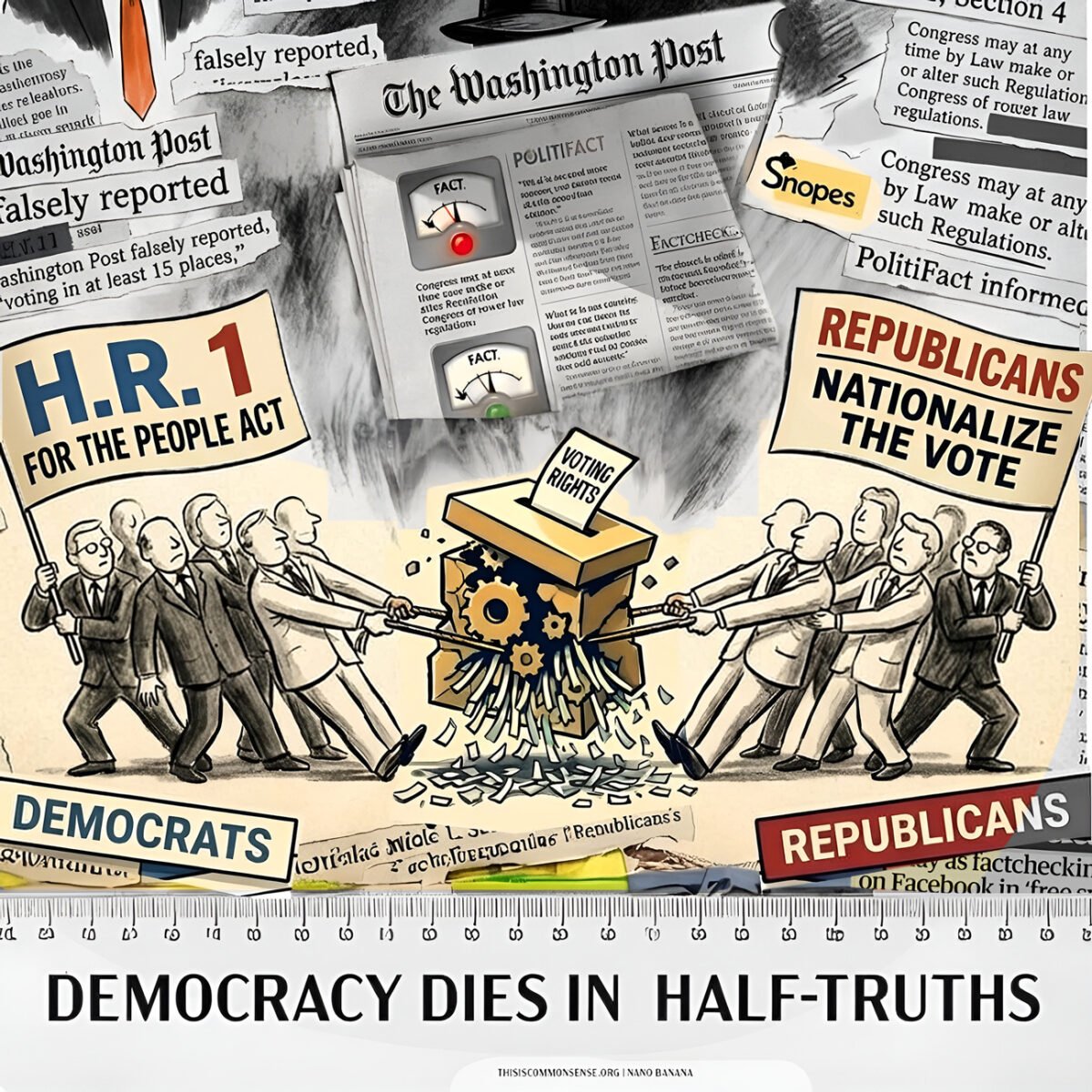“We should take over the voting, the voting in at least 15 places,” President Donald Trump declared on former FBI deputy director Dan Bongino’s new podcast. “The Republicans ought to nationalize the voting.”
That’s just what Democrats in the U.S. House attempted to do back in 2021 with their H.R. 1. I know well because I worked with a large coalition of groups and individuals to oppose that dishonestly labeled “For the People Act.”
For the people who are Democratic Party hacks maybe.
A 2021 Heritage Foundation analysis argued the legislation would “Seize the authority of states to regulate voter registration and the voting process.”
“The Democratic bill is indeed sweeping,” PolitiFact informed at the time. “At 791 pages, the bill does everything from prohibiting states’ voter ID laws to breaking the gridlock of the Federal Election Commission by removing a member.”
Luckily, H.R. 1 did not pass the Senate.
Have you ever noticed that in the tug of war between federal and state power, politicians of all stripes support the Constitution’s balance when it suits them and ignore it when it doesn’t?
Same goes for news media. The Washington Post falsely reported on Monday that by urging “Republican lawmakers” to act, the president was “claiming a power explicitly granted to states in the U.S. Constitution.”
Well, Article 1, Section 4 of the U.S. Constitution does say “The Times, Places and Manner of holding Elections … shall be prescribed in each State by the Legislature thereof,” but it explicitly adds that “the Congress may at any time by Law make or alter such Regulations …”
Democracy dies in half-truths.
This is Common Sense. I’m Paul Jacob.
Illustration created by Nano Banana
See all recent commentary
(simplified and organized)
See recent popular posts




